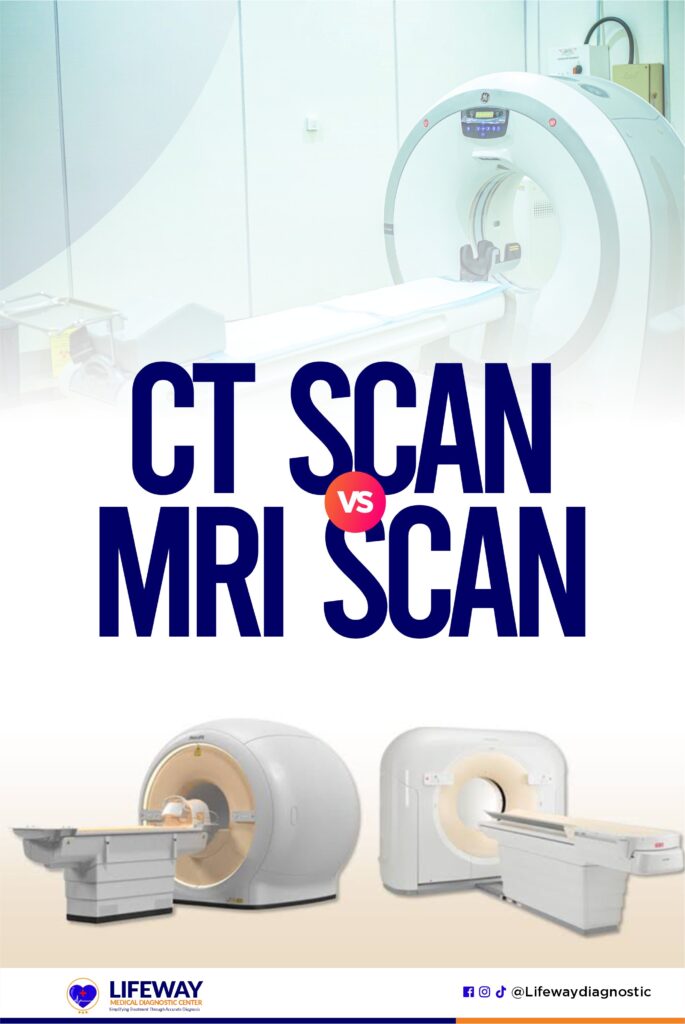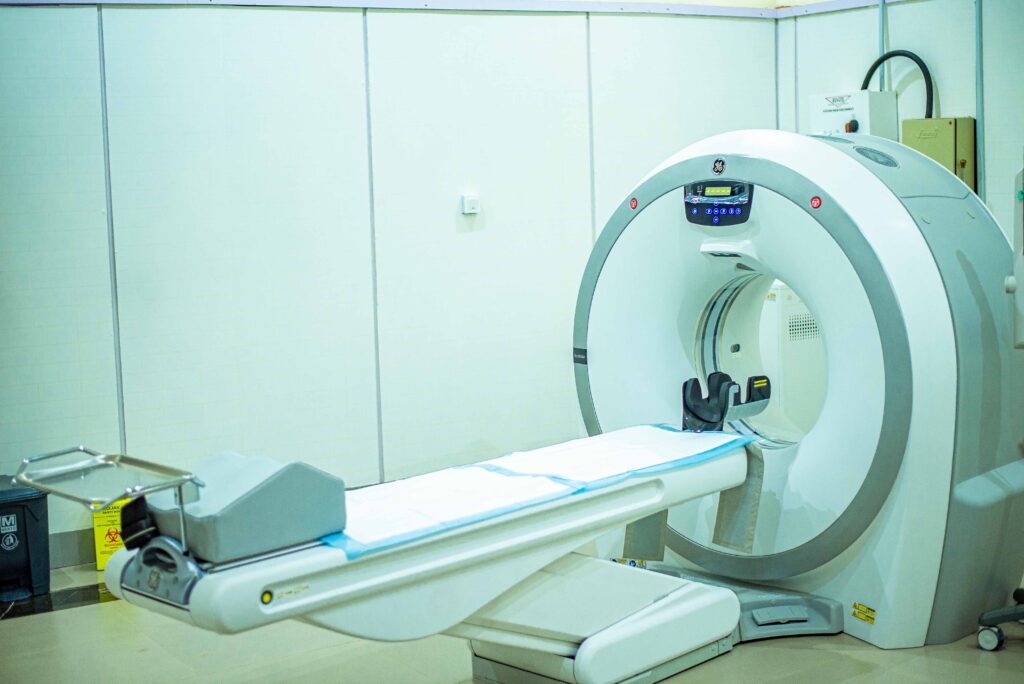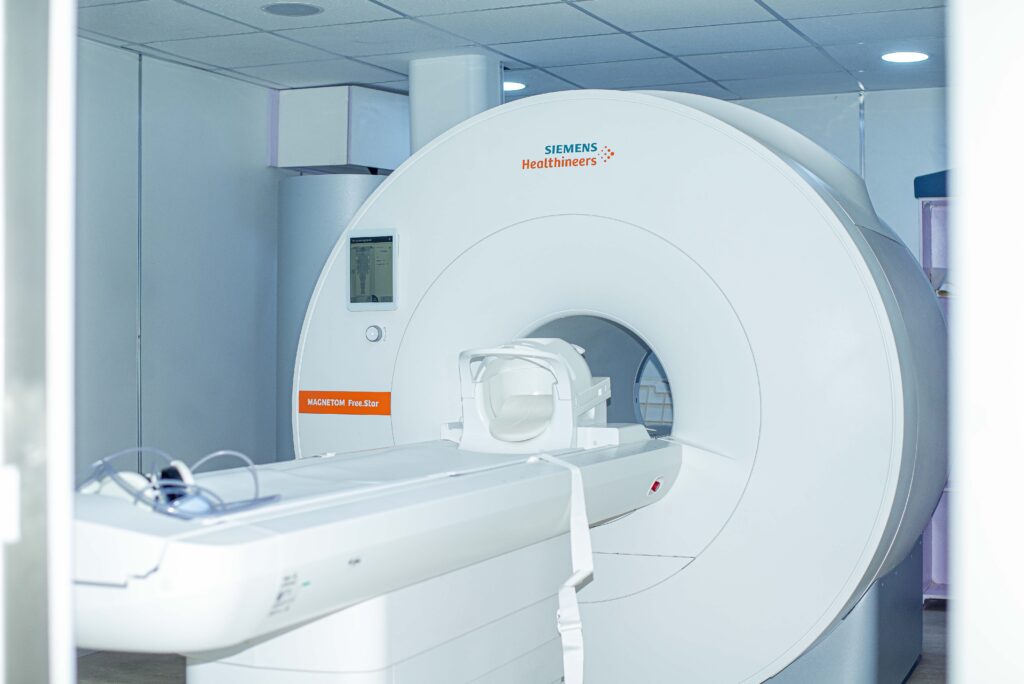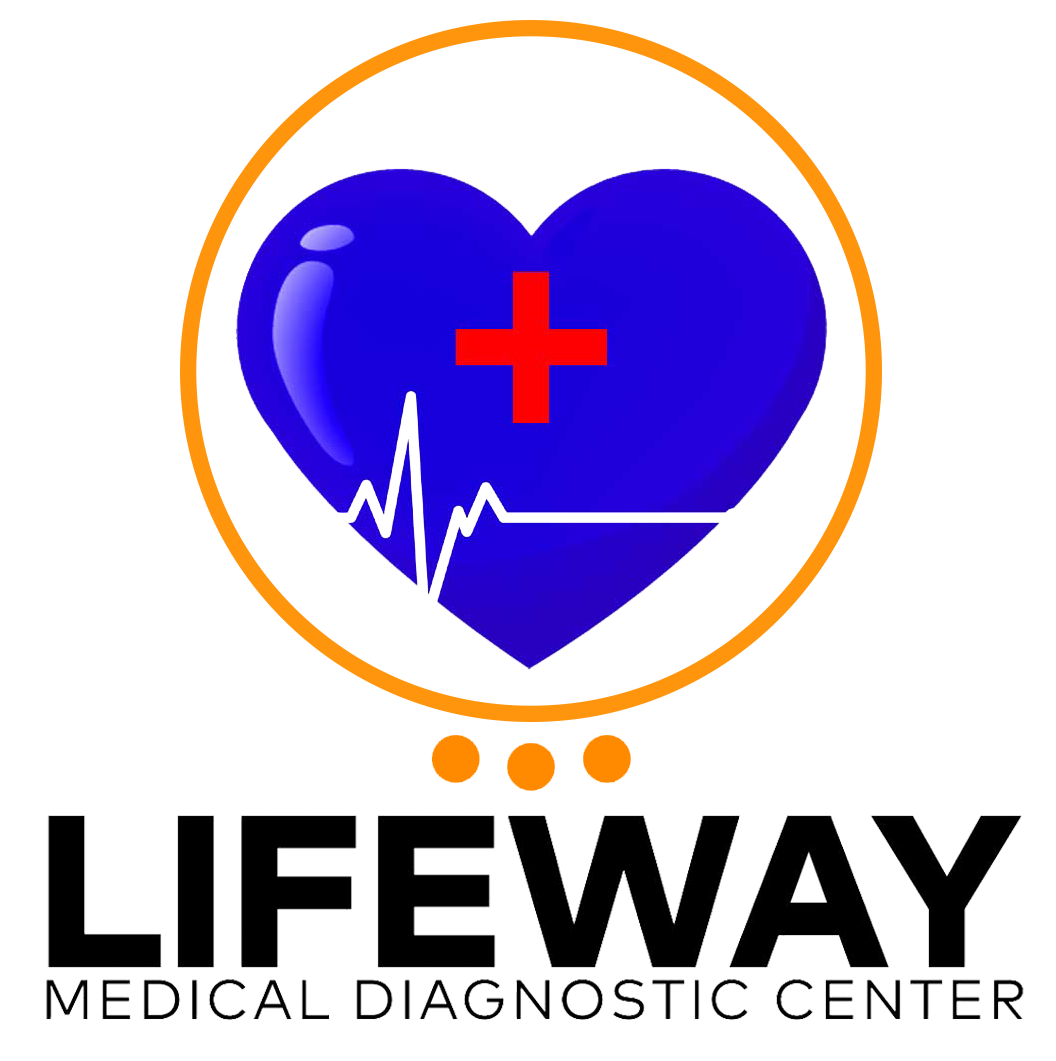You may already know that CT and MRI scans are two imaging procedures doctors use to diagnose internal diseases, including cancer. However, between CT vs MRI scan, is one test better than the other?

Both of these diagnostic tools provide healthcare providers with detailed, high-quality images of the body’s internal structures, but they differ in several key ways.
What remains unclear to some is why the doctor chooses one scan over the other. In some cases, a doctor recommends both but asks you to start with one depending on the severity of the ailment.
Understanding the unique strengths and applications of CT vs MRI scan can help patients make informed decisions about their healthcare. This article highlights all you need to know about a CT scan and an MRI scan.
What does a CT scan show?
The person lies on a table that moves through a scanning ring, which looks like a large doughnut. The scan lasts for about 10 minutes. This large doughnut-like machine collects the data and assembles it into three-dimensional images, which doctors interpret.

Conditions a CT Scan Identifies
Some of the conditions a CT scan identifies include:
- Circulation problems: It diagnoses heart disease, blood vessel blockages, kidney problems, pulmonary edema, and aortic aneurysms.
- Abdominal abnormalities: When there are unknown masses in the liver, pancreas, or kidney, a CT identifies them as tumors, or not.
- Urinary bleeding causes: If blood is found in the urine, a CT scan can be done to investigate the cause.
- Lung issues: It identifies signs of fibrosis, emphysema, tumors, pleural effusion, and collapsed lungs, which are causes of breathing problems.
- Skeletal system problems: CT scans give doctors a better view of complex fractures, spinal cord injuries, osteoporosis damage, and bone tumors that a regular X-ray cannot detect.
- Head condition: hemorrhaging, brain calcification, tumors, and blood flow problems to the brain.
- The cause of stroke: CT scans can determine whether a stroke was caused by hemorrhaging or a blocked artery.
What does an MRI Scan show?
MRI stands for magnetic resonance imaging. It is used to get an in-depth and detailed look at organs and tissues without using ionizing radiation.
This makes MRI scans a safer option, particularly for conditions that require repeated imaging over time.
MRI scans are especially useful for visualizing the brain, spinal cord, ligaments, and organs.

An MRI scan creates an image of almost the entire body, from the neck to the thighs, in a few seconds. It uses radio waves and a powerful magnet to create a view of the bones, tissues, and organs.
People who have trouble with claustrophobia or are unable to hold their breath, which may be required for certain abdominal imaging tests, may not tolerate the procedure.
Conditions an MRI Scan Identifies
Doctors use an MRI to diagnose many conditions, including:
- Breast cancer and tumors: MRI is an incredibly useful tool for diagnosing and staging cancer, checking whether it has come back, and monitoring if a treatment is working. It is also used to check if the cancer has spread to other parts of the body, such as the lungs, liver, or bone.
- Inflammatory bowel conditions: Doctors examine the bowels for ulcerative colitis.
- Joint abnormalities: Ligament, joint, and tendon problems appear clearly on an MRI.
- Liver disease: on an MRI scan, damage to the liver from disease or lifestyle, such as cirrhosis, appears.
- Bone disorder: MRIs will show bones and the soft tissues around them. This gives the doctor a complete picture of the bone’s health, including whether there are infections or tumors on or near the bones.
- Blood vessel irregularities: blood vessel issues like aneurysms, damage from previous heart attacks, artery blockages, etc.
CT vs MRI Scan: What’s the difference?
Both CT scans and MRI scans play critical roles in modern healthcare. Here’s a comparison of CT vs MRI scans:
a) Time:
CT scans are typically faster than MRI scans, taking anywhere from 10-30 minutes to complete. MRI scans can take 30-60 minutes or longer, as the machine needs to collect data from multiple angles. This longer duration can be a consideration for patients who have difficulty remaining still or have claustrophobia.
b) Cost
CT scans are generally less expensive than MRI scans and are more widely available in most healthcare settings. However, MRI machines have become increasingly common in recent years as the technology has advanced.
c) Image Quality and Detail
MRI scans provide higher-resolution, more detailed images that can better differentiate between various soft tissues in the body. This makes MRI useful for imaging the brain, spinal cord, ligaments, and other soft tissue structures.
CT scans, however, may be better at visualizing bone, as well as detecting certain types of tumors or bleeding.
d) Imaging Approach
CT scans use X-rays to take multiple cross-sectional pictures of the body, which are then compiled into a 3D image.
MRI scans, on the other hand, use strong magnetic fields and radio waves to stimulate the body’s hydrogen atoms and produce detailed images.
e) Radiation Exposure
One of the major advantages of MRI is that it does not involve any ionizing radiation, unlike X-rays used in CT scans.
Exposure to too much radiation over time can potentially increase cancer risk, making MRI the preferred option for certain conditions, particularly in children.
Conclusion
CT scans take a fast X-ray picture of the part of the body that is scanned. On the other hand, an MRI uses strong magnetic fields to take pictures of the inside of the body.
Doctors usually choose CT scans as the first-choice imaging method. They use MRIs for deeper investigation, especially for diseases that a CT scan cannot detect.
In general, doctors prefer MRI scans when soft tissue detail is critical, while they choose CT scans to quickly visualize bones, identify trauma, and scan patients who cannot undergo an MRI.
The choice between a CT vs MRI scan depends on the specific clinical question and the availability of the equipment. Thankfully, Lifeway Medical Diagnostic Center offers both CT Scan and MRI Scan services.
You can also read:
- Why Choose Lifeway Medical Diagnostic Center?
- Lifeway Diagnostic Ambulance Service
- EEG (Electroencephalogram); All You Need To Know
- Where to get a CT Scan near me
- Spirometry: Understanding and Preparation
